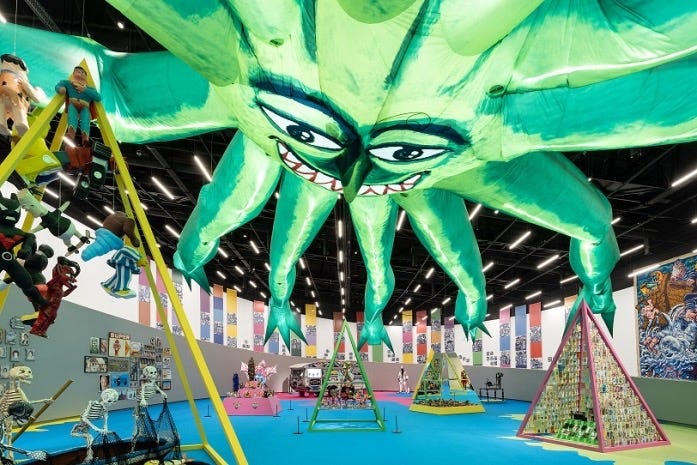Humor scientists
How comedians measure our cultural progress and why our sense of humor says its all
My wife hates when I work late. But that’s not fair because she works late too. I always find her in the kitchen after 5pm.
Either you think that’s hilarious, your eyes glazed over, or you’re ready to go on a verbal attack. Sense of humor says it all. It’s one of the best litmus tests for where we stand on social and cultural issues, and it’s probably the easiest litmus test for progressive thinking in our communities (essentially a modern vs. traditional point of view).
Perform this joke in Bushwick, a young, artsy, newly gentrified part of Brooklyn, and the audience might yawn, share some awkward glances, and a few angry post-show tweets (X’s?). You won’t be making any more comedic appearances after that. Some might even argue that if you make this joke anywhere in New York, it’s the equivalent of announcing you’re Russian at a Ukrainian refugee meetup. Risky at best, suicidal at worst. But perform that same joke in Portugal to a middle-aged crowd who lived under a dictatorship until 1974, and you might be met with smiles.
Having a sense of humor is a precarious thing.
What we find ourselves laughing at says so much about what we believe. To be fair, it says a lot more about the cultural views lurking throughout our communities.
For example, we say gender rights are essential, but we laugh at sexist jokes and allow comedians to swallow the blame for our well-meaning inconsistencies. In reality, jokes reveal just as much about the audience as the performer. The comedian works for laughs, sometimes for cheap ones, but laughs nonetheless. Naturally, I’m hesitant to extend the term “scientific thinker,” but the job requires relentless joke formulation and testing. Let’s be generous and call them our humor scientists.
Now, the audience, finally unplugged for 60 mins, jaw unclenched, drink in hand, is waiting in anticipation for the next joke. The element of surprise plays an important role; there is no time to prepare. The way we respond to comedy is arguably the most genuine expression of what we find obviously or uncomfortably true. We laugh, scowl, or yawn. When a joke fails, it fails because it doesn’t resonate with the audience. The crowd doesn’t relate and is often outright annoyed with the boring observations brought to their attention.
With each joke (putting aside poorly written ones), the audience generally reacts with:
Comfortable laughter: it’s true, but I haven’t noticed this before. Hope to remember this joke for later.
Hesitant laughter: I would never say this at work, but secretly agree with the observation. Maybe I’ll tell my close friends if the timing feels right.
Awkward smile: I can’t believe someone said it! “Are we allowed to laugh?”
Silence: This is unrelatable and outdated.
The last reaction, silent boredom, is where progressive thinking has really taken hold. This is honest, observable progress. Jokes about sensitive topics like race, gender, economic equality, religion, and immigration differ depending on where you are. Sometimes, the difference in reaction is felt when you cross a border, sometimes a zip code. But our laughter exposes us all the same.
Once something is no longer funny, like really.not.funny, where the crowd is quiet and uncomfortable because they’ve been transported back in time, that says it all to me – hello friend, we’ve transformed. Consensus has been reached in the community, and our progress is now a shared collective silence.
Sincerely,
Laughing in private





So much truth in this!
Awesome. Thanks for writing this Yelena.